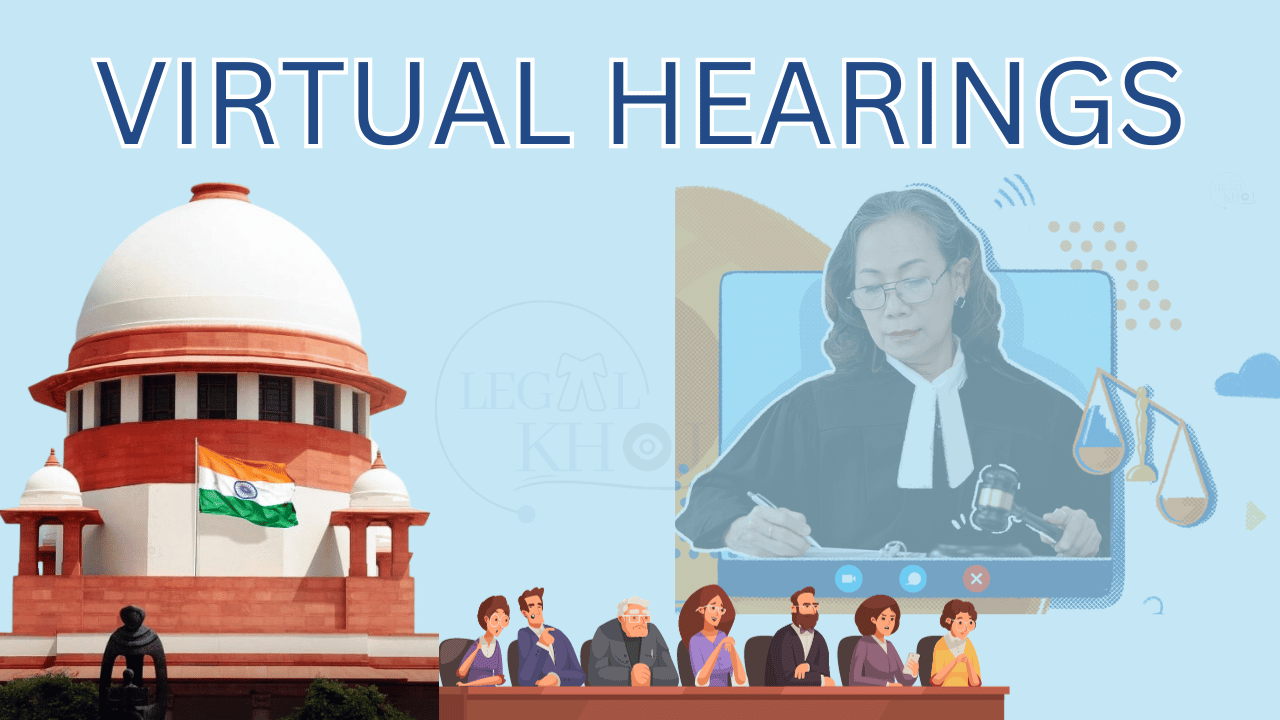Improving Electronic Access in High Courts
The Supreme Court has made it mandatory for all High Courts in the country to have Virtual hearings . However, the Supreme Court expressed its concern about the lack of consistent rules, known as Standard Operating Procedures (SOPs), for electronic access to hearings in High Courts. The court stressed the need for clear and uniform guidelines for using technology in legal proceedings.
The bench, led by Chief Justice DY Chandrachud, along with Justice J.B. Pardiwala and Justice Manoj Misra, criticized the current SOPs for imposing age-based restrictions on who can participate in hybrid mode hearings. These restrictions only allow advocates and parties-in-person aged 65 or above to use electronic access.
Inconsistent Access to Virtual Hearings
The Supreme Court observed that different High Courts had varying SOPs for electronic access, causing confusion and inconsistency. In some cases, litigants and lawyers had to apply for electronic access well in advance, sometimes up to three days before the scheduled hearing. The court believed that this practice created unnecessary obstacles and delayed the pursuit of justice. The court expressed its concern:
“In most High Courts, the problem is compounded by the absence of a uniform SOP which brings clarity to the manner in which access to the electronic mode of hearing can be obtained. An application for electronic access has to be submitted well in advance, in certain cases, three days before the date of commencement of the hearing.”
Criticism of Age-Based Restrictions
The Supreme Court also criticized age-based restrictions in the existing SOPs. Some High Courts only allowed advocates and parties-in-person aged 65 or older to participate in hybrid mode hearings. The Supreme Court argued that this arbitrary age limit could disadvantage younger lawyers and limit technology access to senior legal professionals.
The court emphasized that these age-based criteria did not align with the primary goal of using technology in courtrooms, which is to enhance accessibility. The court stated:
“The arbitrariness of the existing SOPs is also borne out by rules such as hearing being allowed in hybrid mode for advocates/parties-in-person who are 65 years of age or above. The age restriction would unfairly disadvantage younger lawyers and restrict access to technology only in the hands of the seniors at the Bar. Such criteria do not bear any nexus to the aim of using technology to increase access to courtrooms.”
Embracing Virtual Hearing
The Supreme Court instructed High Courts to provide free internet facilities, including Wi-Fi, to all advocates and litigants appearing before them. It also mandated that Video Conferencing links be included in the court’s cause list, eliminating the need for a separate application to appear virtually. Additionally, the Supreme Court directed all High Courts to establish a clear Standard Operating Procedure (SOP) for litigants to access hybrid and video conferencing hearings within four weeks.
Also Read – Film Producer Leena Manimekalai Faces FIRs Across Multiple States









Leave a Reply